Mauritania’s meteoric rise and lessons for Bangladesh

In 2012, Bangladesh were ranked 168th in the FIFA rankings, while Mauritania, a little-known African nation, were languishing at 206.
Fast forward to 2024, Mauritania have rose to 105 in the rankings and have made history by reaching the last-16 of the Africa Cup of Nations (AFCON) for the first time.
Bangladesh, on the other hand, have regressed to 183, is struggling in regional competitions and have never even qualified for their continental competition, the AFC Asian Cup.
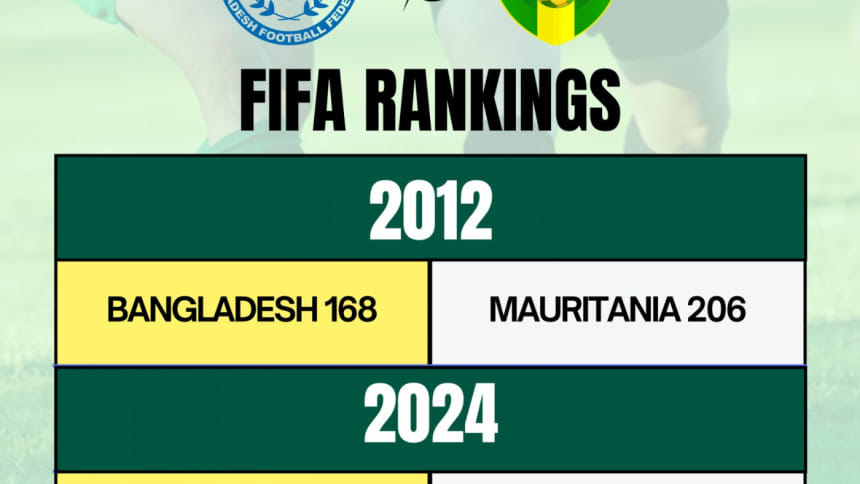
Mauritania's meteoric rise from the pits of international football in just 12 years is astounding and a testament to how proper planning can lead to rapid change, something sorely missing in this part of the world.
Gaining independence in 1960, Mauritania, like many African nations, was a country embroiled in territorial dispute, leaving scarce resources for football, which manifested in them going winless between 1995 and 2003 and withdrawing from the World Cup and AFCON qualifiers multiple times due to financial constraints.
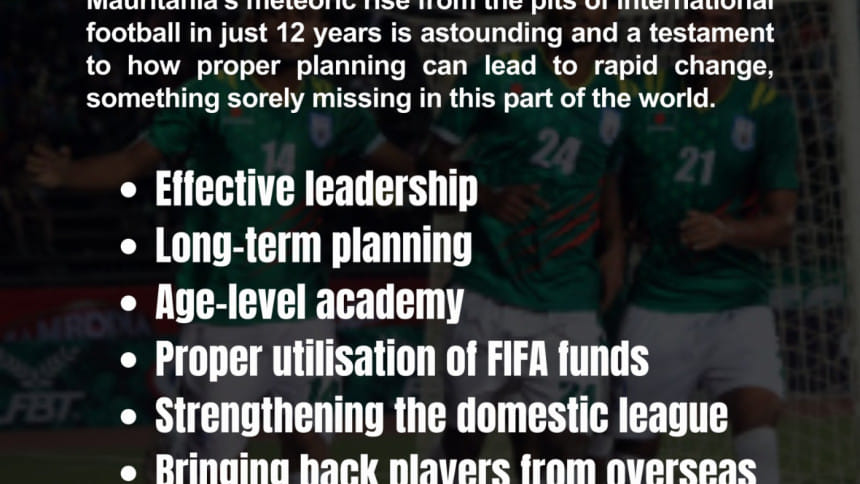
The turnaround began in 2011, when Ahmed Yahya became president of the Mauritanian Football Federation (FFRIM).
The new president quickly set about transforming the domestic league, securing investment from Mauritel, the country's leading telecommunications provider. This cash injection allowed clubs to offer players regular salaries.
Yahya also expanded the league and recruited talented Mauritanian footballers playing abroad, something the Bangladesh Football Federation (BFF) has never done.
Although the current Bangladesh captain Jamal Bhuiyan and national team defender Tariq Kazi are two Bangladeshi-born players who came from Denmark and Finland respectively, they came to the country to play football of their own accord and had to go through many hoops before getting opportunities.
To improve the country's football infrastructure, FFRIM jumped at the chance when FIFA launched a programme in 2016 to use its earnings from the World Cup to fund development projects, securing a USD 11.1 million funding.
FFRIM used it to renovate their headquarters and stadiums, build a new medical centre, install three synthetic pitches and set up an Under-15 youth academy in Nouadhibou.
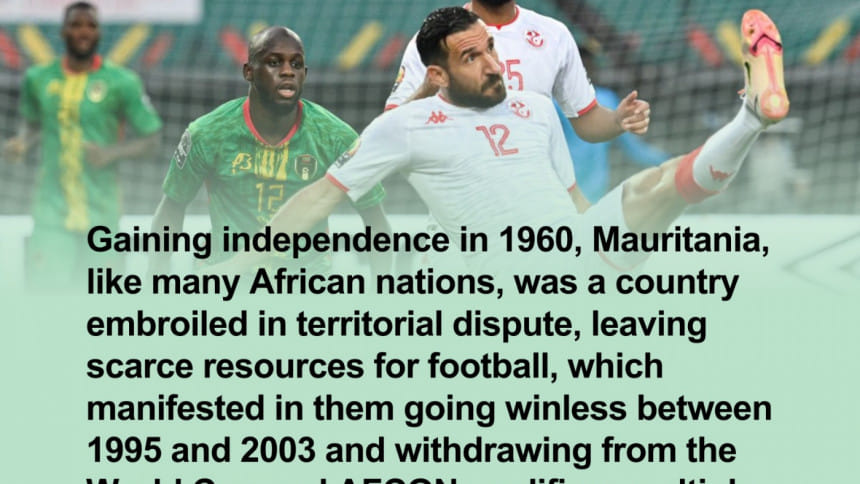
The investments started paying dividends on the field, as they qualified for their maiden AFCON in 2019 and repeated the feat in 2021, although they failed to register a victory.
By 2024, several of the graduates from the U15 academy were part of the Mauritania team and helped them qualify for the AFCON for the third time in a row.
They were staring at another elimination after losing to Burkina Faso and Angola, but a stunning win over 2019 winners Algeria on Tuesday night earned them a place in the knockout stages.
FFRIM practically revolutionised their football scene by utilising FIFA's funds while BFF, which annually receives USD 1 million from the world football's governing body, has been accosted by FIFA for mishandling the funds allotted to them.
FIFA banned BFF's long-serving general secretary Abu Nayeem Shohag in April last year for falsifying documents to justify payments made by the BFF with FIFA funds, a shameful incident that indicates the difference between the football administration in Bangladesh compared to Mauritania.
Mauritania head coach Amir Abdou, overwhelmed after his team's incredible victory, said, "Nobody was thinking about Mauritania, but football is like that, full of surprises, and we have been rewarded for all the hard work we have put in."
Mauritania's improbable journey at the AFCON continues next Monday, when they face Cape Verde, and many are wondering if the underdog team can pull off another stunning result to reach quarterfinals.
While Mauritania are enjoying a renaissance under Yahya, Bangladesh are facing a different story.
Kazi Salahuddin, the much-criticised president of BFF for four consecutive terms, had announced the goal of qualifying for the 2022 FIFA World Cup.
But while Salahuddin's promises have fell through and Bangladesh have remained in the backwaters of international football, Yahya and his federation has transformed Mauritania's football, leaving lessons for the BFF along the way.

 For all latest news, follow The Daily Star's Google News channel.
For all latest news, follow The Daily Star's Google News channel. 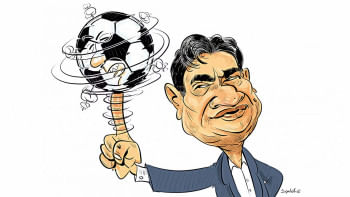



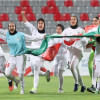





Comments